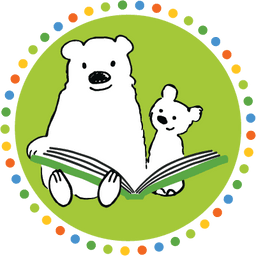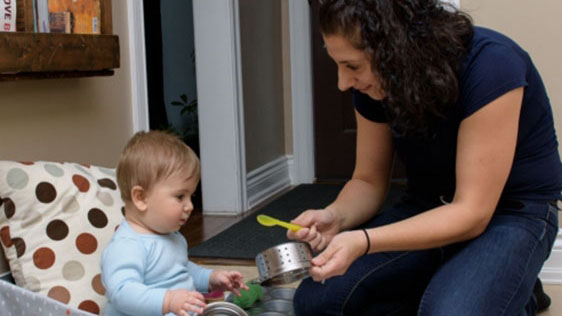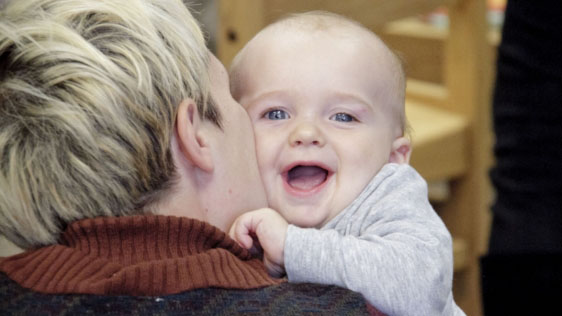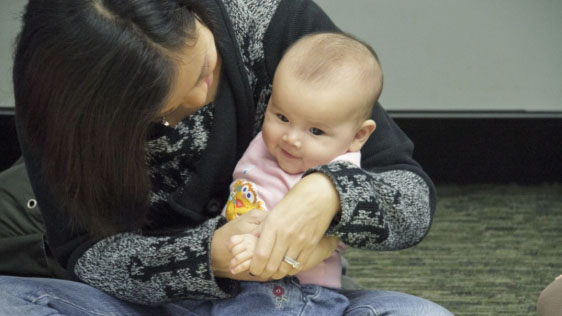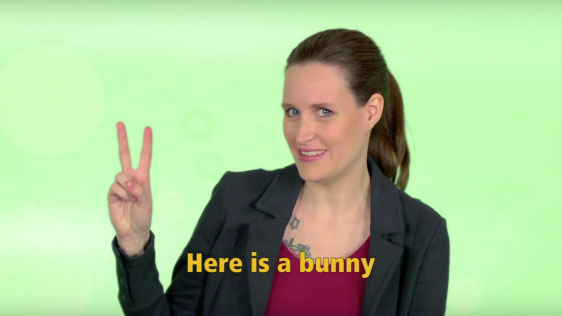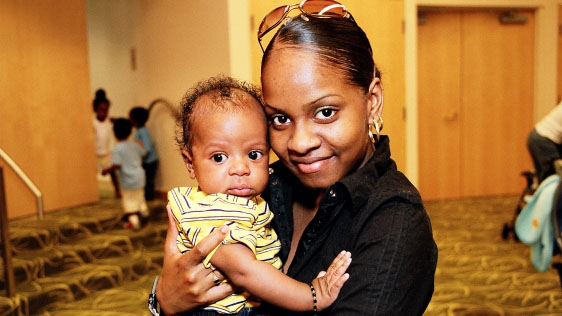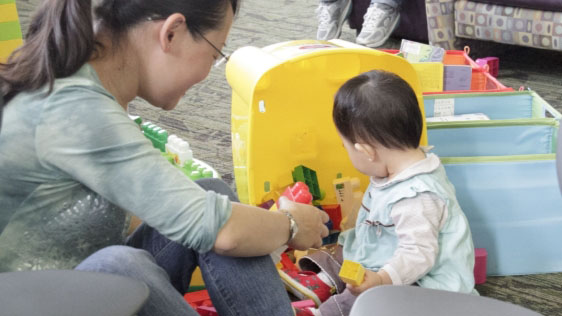
playing
Play is how children learn, and how they come to understand their world.
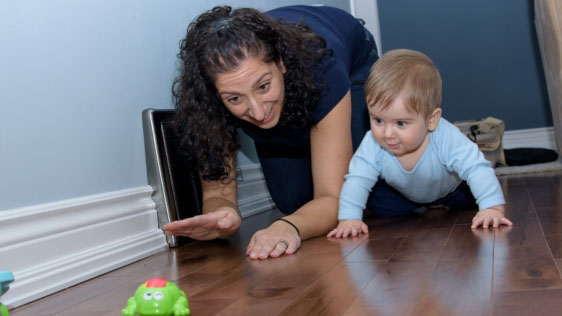
Game: Match Me Up
Related to: Knowing Words, Play
Collect pictures of things your child can easily find...
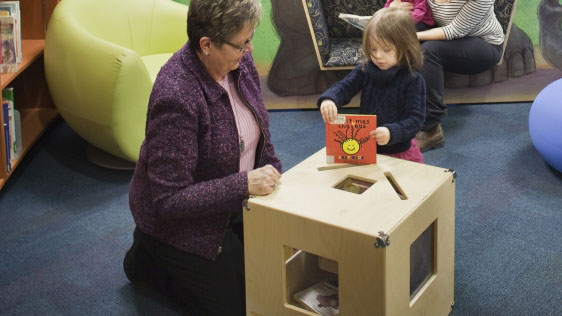
Game: Feed the Little Monster
Related to: Knowing Letters, Play
Fill a paper bag or a ziploc bag with some...
 playing Tips
playing Tips
- Play with magnetic letters on the refrigerator or on metal baking trays. Arrange the letters in alphabetical order. Remove a letter and ask your child which one is missing. Can she put the letter back into the correct space? Or, arrange the letters incorrectly and ask your child to put them into the correct order.
- Sharing nursery rhymes and poetry is one of the best ways to introduce your child to rhyming words. For very young babies, try rhymes that involve a gentle touch, such as patting their feet. Play with your child by making up short rhymes and poems together.
- Help your child roll clay, play dough or plasticine into thin “logs.” Ask your child to use the logs to form the letters they are learning.
Six skills that get your child ready for reading
Liking Books
Children who enjoy books will want to learn to read.
Hearing words
Hearing the smaller sounds in words helps children sound out written words.
Knowing words
Knowing many words helps children recognize written words and understand what they read.
Telling a story
Learning to tell a story helps children develop skills in thinking and understanding.
Seeing words
Familiarity with printed language helps children feel comfortable with books and reading.
Knowing letters
Knowing the names and sounds of letters helps children sound out words.
Dial-a-Story
Call 416-395-5400 anytime and listen to stories in 16 different languages.
Raising Confident Kids
A series of workshops for parents and caregivers.
Storytime at Home
Fun virtual storytimes filled with great books, rhymes and songs. Watch anytime on YouTube and sing along!
